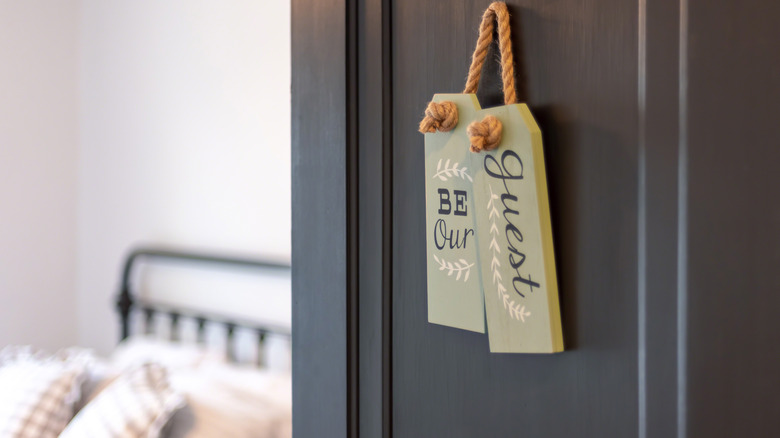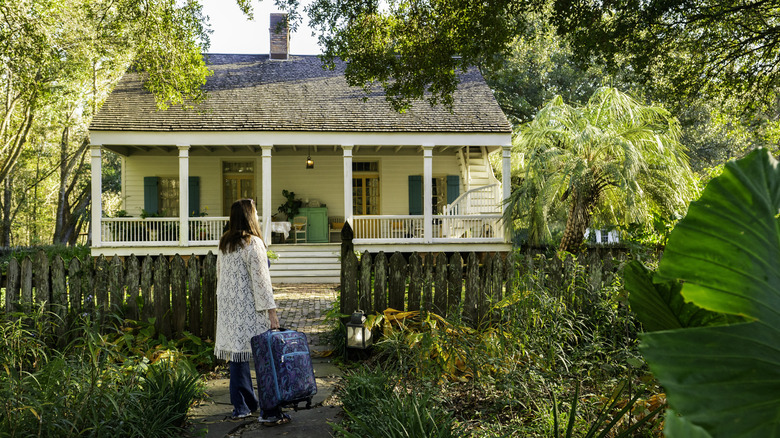Rick Steves Recommends This Specific Kind Of Lodging Option For A More Authentic, Affordable Vacation
Crafting a memorable, unique, and authentic travel experience is something that Rick Steves has mastered over the years. When it comes to organizing a trip, his insider knowledge in the art of travel has steered many people toward fruitful and meaningful encounters with locals and fellow tourists. From his tips on how to avoid getting pickpocketed to advice on which experiences are worth splurging on when taking a trip, Steves' recommendations have long been embraced and followed by his ardent readers. So when he recommends bed-and-breakfasts, or B&Bs, on his website as authentic and affordable alternatives to frequently booked hotels or resorts, we are bound to sit up and take notice. For Steves, a B&B's personal touch is what makes it one of his favorite accommodation types in Europe — and its affordability doesn't hurt, either.
You may be asking why you should give up room service or a hotel bar for a night or two at a stranger's home. As you are literally being welcomed into one's house, the B&B experience gives you insight into how people actually live. This homestay option can range between one spare guest room in a hosts' home to several spare rooms — usually fewer than 10 — to accommodate more guests. A B&B host will generously share insider tips and precious recommendations about their town. From their overflowing bookcases to personalized room decor, you get a taste of home-style comfort that chain hotels can't duplicate. Typically, you can mingle with your host and fellow travelers over a home-cooked breakfast. Bed and breakfasts can cost only half of what you'd pay for a hotel room, making them a solid choice for inexpensive, fuss-free overnight stays.
What to know before staying in a B&B
According to Rick Steves, the first step when staying at a B&B is to take note of the country-specific terminologies for this type of accommodation: Italians call them "pensione" or "locanda," while Germans and Austrians refer to them as "pensionen," "gasthaüser," or "gasthöfe." In France, "chambres d'hôtes" or "gîtes" are what you should be looking for. They are advertised as "hostales" or "pensiones" in Spain and "dhomatia" in Greece. Meanwhile, it's simply called "B&B" in the British Isles, where the term is said to have originated.
Preserving the unique human touch starts when you book a room in a B&B. Some may advertise on third-party booking sites, but reaching out directly to the hosts can score better rooms or rates. Use this opportunity to ask your hosts any questions you might have regarding breakfast availability (some may not offer this service, especially in the aftermath of the COVID-19 pandemic), accessibility, or payment options. As you are staying in another person's home, the rules of etiquette apply: Be courteous to your hosts and the other guests by keeping the noise down and engaging in small talk.
While there has been a notable decline in traditional B&B availability and experience post-pandemic, travelers besides Steves are still enamored by these accommodations, favoring their personal touches to the cookie-cutter offerings of big hotels. "In my experience, they typically have fewer amenities, but the rooms tend to be nicer and the service just feels a bit more personal," says u/MoneyMACRS on Reddit. That said, Steves warns that some properties aren't ideal for children or those with mobility concerns. If you aren't able to find a suitable B&B for your stay, Steves has you covered with his advice for finding other accommodations on a budget.

